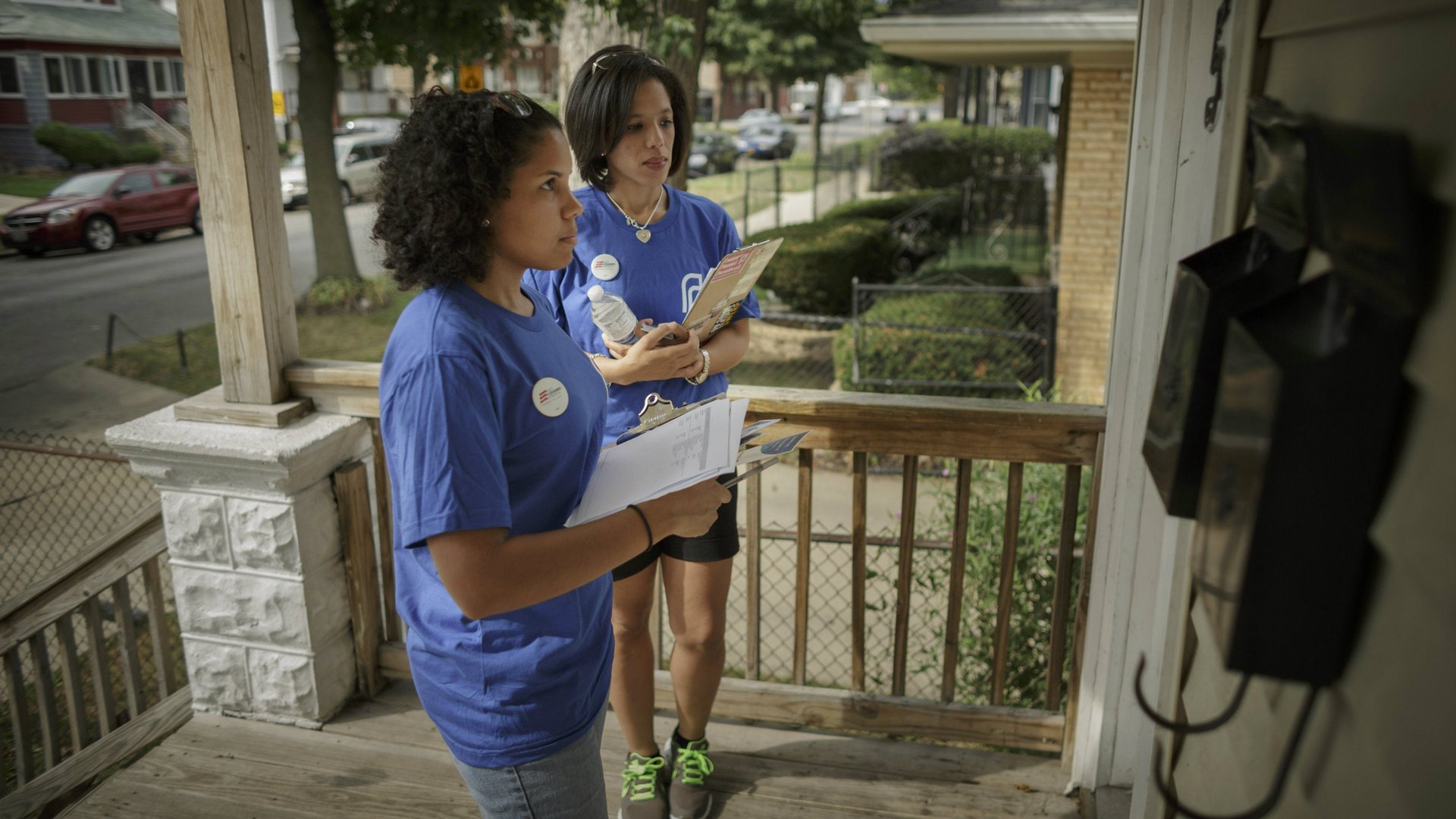Can you change someone’s politics by talking to them for five minutes?
“Will a five-minute discussion change your mind?”


“Will a five-minute discussion change your mind?”
That’s the title of the working paper by Vincent Pons, an assistant professor at Harvard Business School, who was the field director of François Hollande’s French presidential campaign in 2012. To beat the incumbent Nicolas Sarkozy, Hollande launched one of Europe’s largest door-to-door campaign ever 11 weeks before the first round of the election. An estimated 80,000 left-wing activists knocked on five million doors to persuade people to vote for Hollande.
Pons used that opportunity to study the impact of this wide-scale canvassing—using daily reports entered by canvassers, their response to a post-electoral online survey, the official election results at the precinct level, and statistical analysis to evaluate the effects of door-to-door visits.
While areas the campaigners canvassed didn’t see an increase in voter turnout, Pons found that door-to-door canvassing did increase Hollande’s share of the vote in those areas. After controlling for certain errors by the canvassers, Pons noted in the study that the “canvassing campaign accounted for approximately one-third of Hollande’s lead in the first round and one-fifth of his victory margin at the second round.”
Pons suggests the increased vote was driven by the so-called “persuasion effect,” where certain messaging changed people’s attitudes (pdf). The canvassers rejected rigid scripts and instead engaged in what Pons described as “interactive discussions with voters who opened the door.”
The discussions lasted one to five minutes, at the end of the discussion the canvasser handed over some campaign materials. The majority of voters that were canvassed had never been visited by a political activist before, according to Pons. He argued, “these novel and surprising visits sent a strong signal” about Hollande and his party’s qualities.
Over two decades of research from Alan Gerber and Don Green and a number of other political scientists have shown that door-to-door canvassing is a reliable method of campaigning; face-to-face conversations have been shown to lead to a measurable advantage. It’s for this reason that this form of campaigning remains popular both in the US and the UK, but studies show it’s not just about the number of doors people have knocked on.
Campaigners have to invest in high-quality canvassing to make sure their campaign has a sizable impact; Canvassers who make time to have genuine conversations with voters, and not just rush through a script, tend to have a bigger impact with voters, which echoes Pons’s findings.
Others remain unconvinced by the power of the persuasion effect. They point to a widely publicized study that concluded gay canvassers could convince a voter to support same-sex marriage after having one-on-one discussions—months later, it became clear that the study was faked. The study was a huge blow to the impact of non-scripted door-to-door canvassing, and highlights the difficulties in changing someone’s mind.
There are obvious reasons as to why Pons would reach his conclusion—he has a vested interest in suggesting the election strategy he took part in works. Pons admits he’s unable to test this interpretation of the result, but he firmly believes that “one-on-one discussions have a strong potential to shift people’s decisions.”
For now, it’s worth noting his working paper has yet be scrutinized by other researchers.